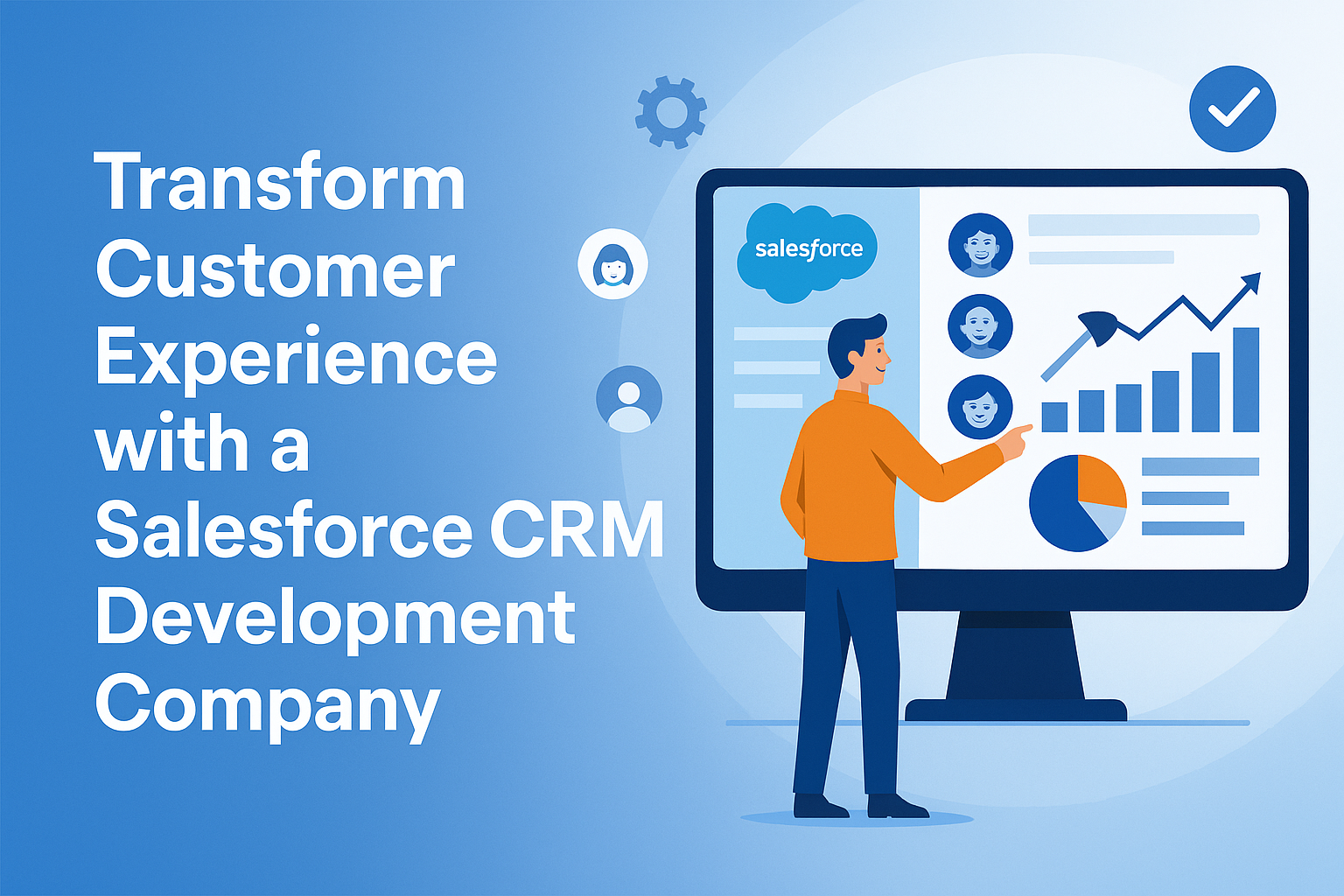Boost Business Efficiency with Expert Salesforce Integration Services

In today’s fast-moving business world, efficiency isn’t just a buzzword—it’s a bottom-line driver. Enterprises are juggling multiple software tools, customer touchpoints, and datasets across departments. When these tools operate in silos, productivity suffers. That’s where Salesforce integration services come into play.
Salesforce—known as the world’s #1 CRM—becomes truly transformative when it’s connected to your broader tech stack. From ERPs and accounting tools to marketing automation platforms and communication apps, Salesforce integration services ensure seamless data flow and real-time intelligence across your organization.
So if you’re wondering how to unlock better team collaboration, faster decisions, and higher ROI from your software systems—this post is for you.
💡 What Are Salesforce Integration Services?
Salesforce integration services refer to the process of connecting Salesforce CRM with other internal or external applications, databases, or platforms to unify data and workflows.
The goal?
- Eliminate data duplication
- Avoid manual entry
- Improve process automation
- Deliver a 360° customer view
These services involve APIs, middleware, custom connectors, and process orchestration to ensure that Salesforce “talks” effectively to the rest of your digital ecosystem.
⚙️ Types of Salesforce Integrations
Depending on your business needs, Salesforce can be integrated in several ways:
1. Data Integration
Sync customer data across platforms—like ERP, support ticketing systems, or email marketing tools—to ensure consistency across departments.
2. Process Integration
Align business processes (e.g., lead capture, invoicing, or service workflows) between Salesforce and third-party apps like SAP, QuickBooks, or Shopify.
3. User Interface Integration
Bring Salesforce data into external UIs (like internal dashboards or mobile apps) or vice versa, providing a smoother experience for your team.
🚀 Top 7 Benefits of Salesforce Integration Services
1. One Source of Truth for Your Data
Manually exporting and importing data across tools is inefficient and error-prone. Salesforce integration helps unify your data streams, so all teams—from sales to support—see accurate, updated customer profiles and interactions.
No more outdated Excel sheets. No more guessing which system is correct.
2. Automated Workflows Save Time
Imagine this: A lead fills out a form on your website. Instantly, that lead is created in Salesforce, assigned to a rep, and added to an email nurture sequence in Mailchimp.
With proper integration, tasks like this are automated—saving hours of manual work every week and reducing human error.
3. Improved Team Collaboration
When marketing, sales, service, and finance teams operate on disconnected platforms, miscommunication is inevitable.
Salesforce integration services bring everything under one roof—creating shared visibility, better collaboration, and smoother hand-offs between departments.
4. Faster, Smarter Decisions
With real-time data syncing from all connected tools, your dashboards reflect the latest updates. Whether it’s sales numbers, campaign performance, or support metrics—leaders get reliable insights to drive faster decision-making.
You don’t need to wait for end-of-week reports to take action anymore.
5. Enhanced Customer Experience
Customers expect seamless experiences—from inquiry to purchase to support. When your tools are connected via Salesforce, your team can:
See every past interaction
Offer personalized recommendations
Resolve issues faster
All of this leads to happier customers and higher retention.
6. Boosted Employee Productivity
Your team spends less time switching between tools, copying data, or chasing follow-ups. Instead, they work inside Salesforce—with all the context they need pulled from integrated platforms.
Less admin. More action.
7. Scalability and Flexibility
As your business grows, you’ll adopt new tools and processes. Salesforce integration services ensure that new software connects smoothly to your CRM—so scaling operations doesn’t create chaos.
Whether you’re expanding to new markets or launching new products, your systems will grow with you.
🛠️ How Expert Salesforce Integration Services Work
Here’s a high-level overview of how a professional integration process typically unfolds:
Step 1: Assessment
Understand your current tools, workflows, and business goals.
Step 2: Planning
Define which systems need to be integrated, what data should flow, and how often.
Step 3: Connector or API Setup
Use existing plugins or develop custom APIs for secure communication between platforms.
Step 4: Data Mapping & Syncing
Align fields between systems and ensure data formatting and timing match.
Step 5: Testing & QA
Run real-time and bulk tests to ensure seamless sync without data loss.
Step 6: Training & Deployment
Enable your teams with clear workflows and documentation post-go-live.
🔐 Security & Compliance Considerations
Data privacy laws like GDPR, HIPAA, and India’s DPDP Act make data security non-negotiable. A professional Salesforce integration service ensures:
OAuth-secured APIs
Role-based access control
Encrypted data transmission
Audit trails and logs
So, you’re not just integrating faster—but smarter and safer.
🤝 Why Work with a Salesforce Integration Partner?
While DIY tools exist, enterprise-grade integration demands expertise. Here’s why hiring a certified Salesforce partner pays off:
✅ Deep knowledge of Salesforce architecture
✅ Experience with complex, multi-system setups
✅ Faster implementation and troubleshooting
✅ Long-term support for scaling and updates
✅ Reduced risk of data loss or sync errors
📈 Real-World Impact: A Quick Example
Before Integration:
Sales team logs leads in Excel. Marketing uses HubSpot. Finance uses QuickBooks. No shared visibility. Delays in follow-ups. Data gets missed.
After Salesforce Integration:
Lead fills form → Enters Salesforce → Triggered email in HubSpot → Sales rep gets notified → Invoice generated in QuickBooks.
All automated. All tracked. All synced.
The result? 35% faster lead response time. 20% improvement in conversions. Happy customers and happier teams.
📝 Final Thoughts
In a time when efficiency can make or break growth, Salesforce integration services offer one of the highest ROI moves your enterprise can make. Whether you want to streamline your internal operations, delight your customers, or gain better insights—integrating your systems with Salesforce is the key.
So, don’t let disconnected tools slow you down.
Unlock your business’s full potential with expert Salesforce integration.
Note: IndiBlogHub features both user-submitted and editorial content. We do not verify third-party contributions. Read our Disclaimer and Privacy Policyfor details.





